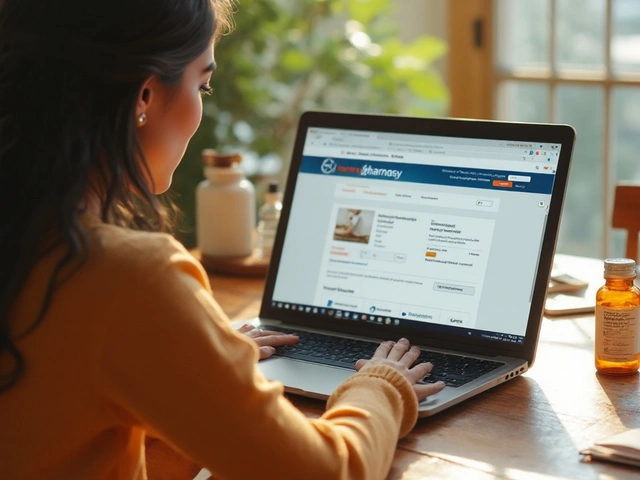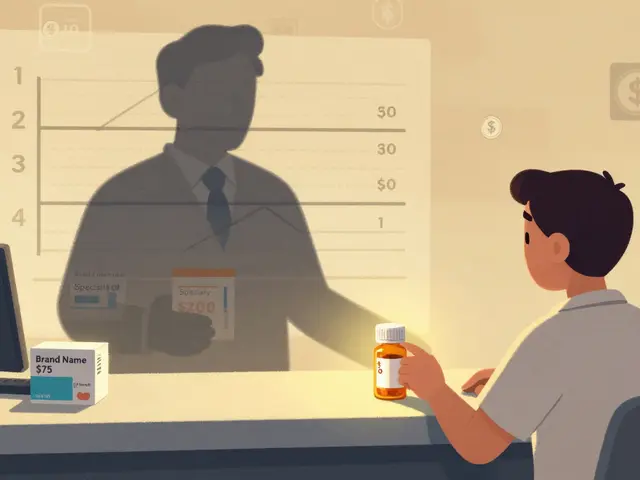Entocort: What It Is, How to Use It, and What to Watch For
Entocort is a brand name for budesonide, a steroid that works straight in your gut to calm inflammation. Doctors usually prescribe it for Crohn's disease affecting the ileum and right colon. Because the medication releases the steroid right where you need it, it causes fewer body‑wide steroid side effects than traditional prednisone.
If you’ve been told to start Entocort, the first thing to know is the dosage form. It comes as a delayed‑release capsule that you swallow whole – no chewing, crushing, or opening. The capsule is designed to dissolve after it passes the stomach, so you get the drug right in the intestine.
Getting the Dosage Right
The most common starting dose for adults with mild‑to‑moderate Crohn's is 9 mg once daily. Some doctors may begin at 6 mg to see how you respond and then raise it to 9 mg after a week or two. For severe flare‑ups, the dose can go up to 12 mg daily, but that’s usually short‑term.
You should take Entocort at the same time each day, preferably in the morning with food. Food helps the capsule pass the stomach faster and reach the intestine where it’s meant to act. If you miss a dose, take it as soon as you remember, unless it’s almost time for the next one – then just skip the missed one and continue your regular schedule.
Never double up on doses to “catch up”; doing so can raise the risk of local irritation or systemic steroid effects. If you’re unsure about the right amount, ask your pharmacist or doctor for a clear written plan.
Side Effects, Interactions, and Safety Tips
Because budesonide is mostly active in the gut, you’ll see fewer classic steroid issues like weight gain or mood swings, but some side effects still happen. The most common ones are headache, nausea, and mild abdominal pain. A small number of users report nausea, indigestion, or a change in taste.
Serious side effects are rare but can include signs of infection (fever, chills), severe abdominal pain, or signs of adrenal suppression such as extreme fatigue. If any of these pop up, call your doctor right away.
Entocort can interact with medicines that affect liver enzymes, like certain antifungals (ketoconazole) or antibiotics (rifampin). Always list every drug, supplement, and over‑the‑counter product you take when you start Entocort. Alcohol isn’t a direct interaction, but heavy drinking can irritate the gut and make side effects worse.
Pregnant or breastfeeding people should discuss costs and benefits with their provider. Budesonide crosses the placenta in small amounts, and the safety data for nursing moms is limited.
Buying Entocort Safely Online
If you need to reorder Entocort, look for a licensed pharmacy that requires a valid prescription. In Australia, reputable online pharmacies will ask for your doctor’s script and show you their TGA (Therapeutic Goods Administration) registration number.
Beware of sites that promise “no prescription needed” or unusually low prices – they’re often selling counterfeit drugs. Check for secure (HTTPS) connections, clear contact information, and a privacy policy before you share personal details.
When the package arrives, inspect the label, expiration date, and capsule appearance. If anything looks off, contact the pharmacy immediately and don’t take the medication.
Keeping a written log of your dosage, any side effects, and refill dates can help you stay on top of your treatment and make discussions with your doctor smoother.
Entocort can be a game‑changer for people with Crohn's disease when taken correctly. By following dosage guidelines, staying alert to side effects, and ordering from trusted sources, you’ll give yourself the best chance at a calmer gut and a better quality of life.
Entocort: Uses, Side Effects, and Practical Tips for Managing Crohn's Disease
Entocort is often prescribed for Crohn's disease. Learn how it works, what to expect, tips for safe use, and what real patients say.
View More




